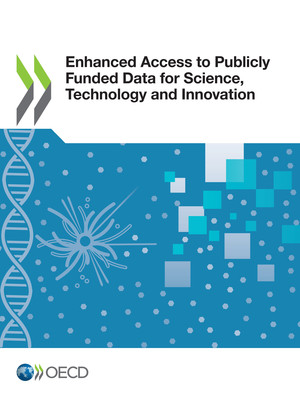copy the linklink copied!Foreword
As society and economy become increasingly knowledge-based, data become a key resource. Data-driven innovation is transforming society through far-reaching effects on resource efficiency, productivity and competitiveness. It also helps address many global challenges, such as climate and demographic changes, and scarce resources. Data-intensive science is seen as the fourth paradigm, after empirical science, theoretical science and simulation. Data also create spillover effects and positive externalities, such as socialisation and behavioural change, cultural and scientific exchange, and greater levels of trust induced by increased transparency.
Access to data is not a binary concept – rather, it can be set to different degrees of openness, depending on the community of stakeholders involved. “As open as possible, as closed as necessary” is gradually replacing the “open-by-default” mantra associated with the early days of the open-access movement. Although opening up data can help advance the science, technology and innovation (STI) agenda, this needs to be balanced against issues of costs, privacy, security, intellectual property rights (IPRs) and preventing malevolent uses. The term “enhanced access to data” is used increasingly in relation to public-sector data and captures some of these important caveats around openness.
In 2006, the OECD paved the way for good practice in providing access to data by adopting the Recommendation of the Council concerning Access to Research Data from Public Funding. This Recommendation remains an important and valued reference in policy making of this increasingly important area.
This report contributes to the OECD horizontal project Going Digital and is complementary to the report Enhancing Access to and Sharing of Data: Reconciling risks and Benefits for Data Re-use across Societies. The latter examines the broad opportunities of enhancing access to and sharing of data across societies in the context of the growing importance of artificial intelligence and the Internet of Things, and discusses how related risks and challenges can be addressed, based on the analysis of current best practices across countries.
In a complementary approach, this report focuses on such opportunities for the purpose of STI, based on insights stemming from analytical work performed by the Committee for Scientific and Technological Policy (CSTP) of the OECD in 2017 and 2018. The analysis is largely based on: i) previous OECD work on access to data and open science; ii) a survey of policy makers on the current policy practice relating to enhanced access to data for STI performed in 2017, answered by 27 delegations; iii) a joint OECD-CSTP-Global Science Forum workshop entitled “Towards New Principles For Enhanced Access To Public Data For Science, Technology And Innovation”, held on 13 March 2018; and iv) case studies contributed by OECD member countries and partner economies. The case studies cover a broad spectrum of issues – from top-level national strategies and governance arrangements for open access to data or open science, to more operational projects, such as the establishment of open repositories and portals. The full text of the case studies can be found online at https://community.oecd.org/community/cstp/enhanced-data-access/. A shorter version of this report has been published as Chapter 6 of the OECD Science, Technology and Innovation Outlook 2018.
The report starts with the definitions of terminology, scope and objectives in Chapter 1. Chapter 2 describes international initiatives in promoting enhanced access to data in publicly funded STI. Chapter 3 continues by presenting national policies in favour of access to data. The main policy gaps hindering access to data are discussed in Chapter 4, while Chapter 5 concludes with a view of potential future developments in this policy field.
This report was declassified by the Committee for Scientific and Technological Policy on 22 September 2019 by written procedure and prepared for publication by the OECD Secretariat.
Metadata, Legal and Rights
https://doi.org/10.1787/947717bc-en
© OECD 2020
The use of this work, whether digital or print, is governed by the Terms and Conditions to be found at http://www.oecd.org/termsandconditions.


